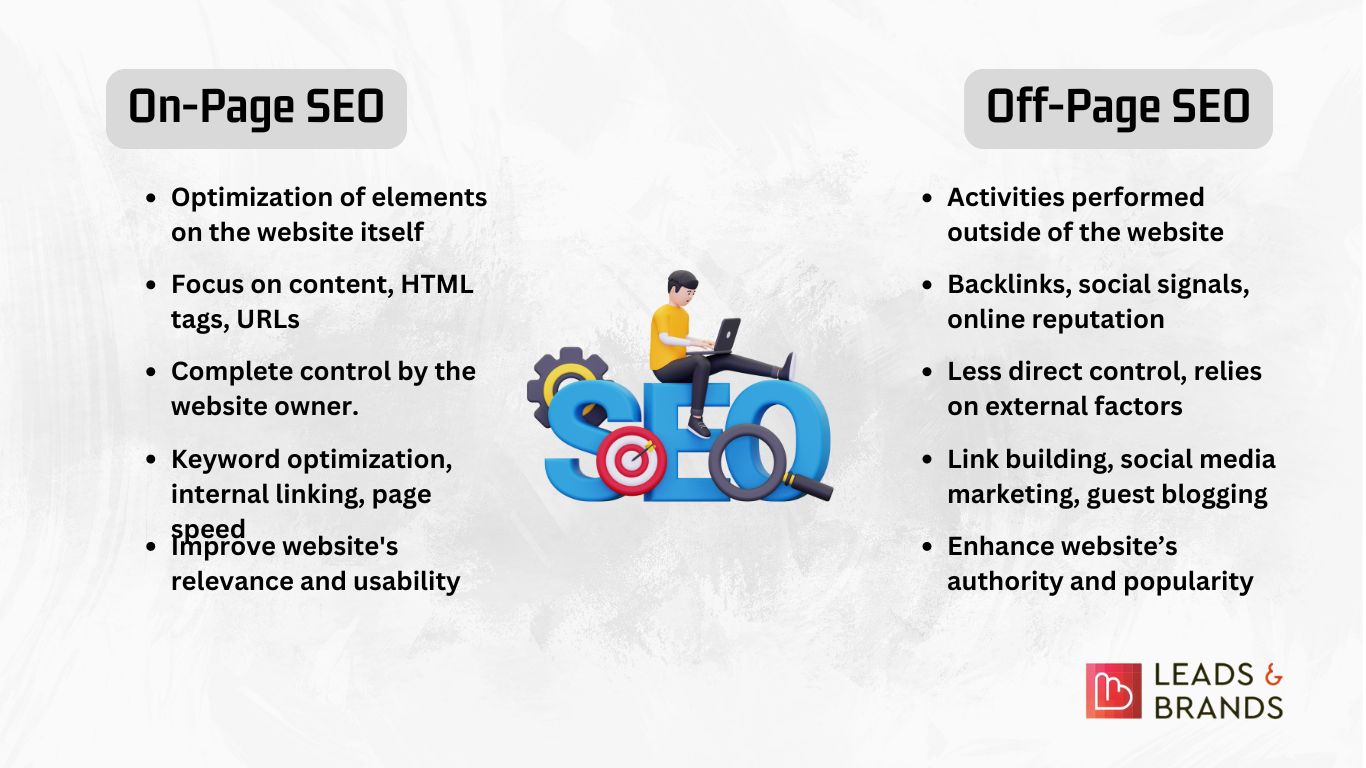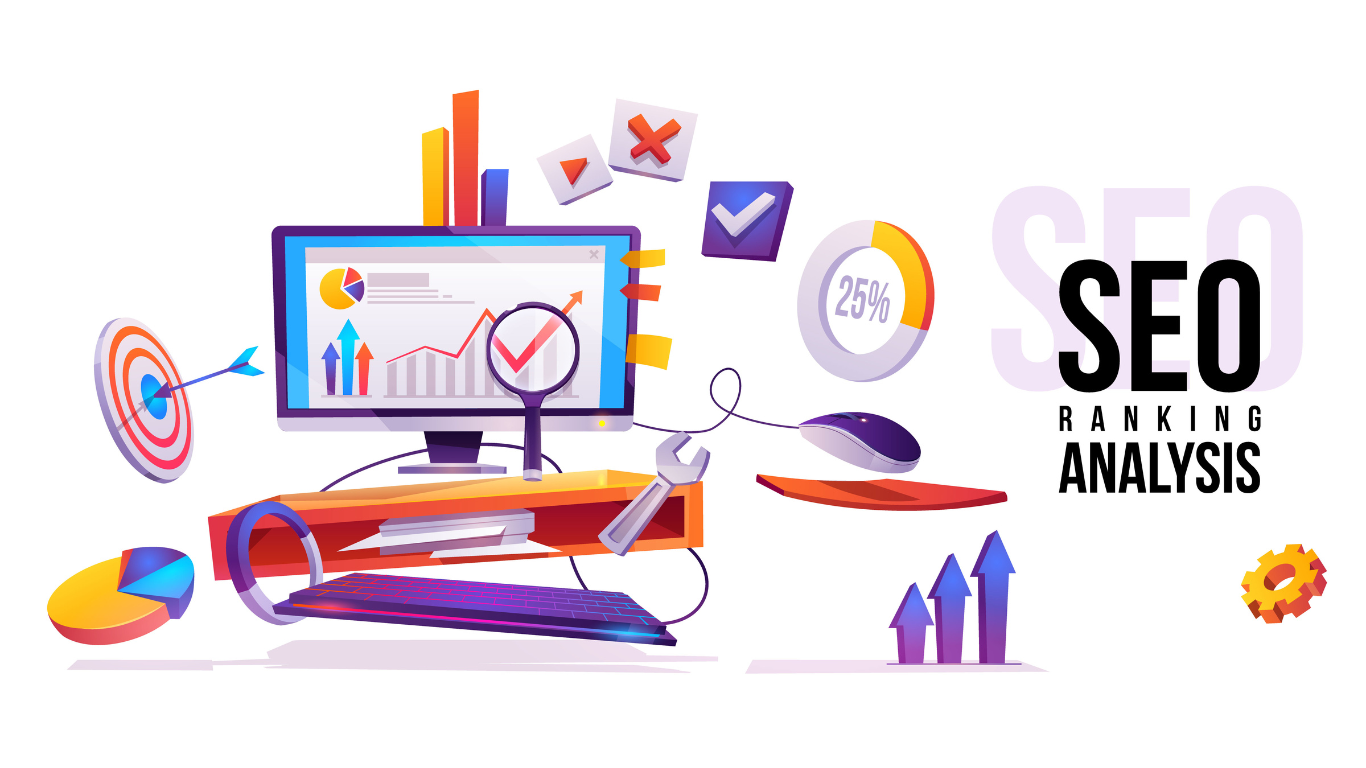
On-Page SEO vs Off-Page SEO: A Quick Guide
On-page and off-page SEO are two important strategies of search engine optimization. They determine how visible your website is online. Understanding these strategies is the key to online success.
In this blog, we will tell the key difference between on-page and off-page SEO.
On-page SEO optimizes your website and webpage content, structure, and user experience. Off-page SEO builds external authority through backlinks, social signals, and brand mentions.
Both are essential for ranking. We will also explore how they can boost your website. Let's get started!
What is On-Page SEO?
On-page SEO is the process of optimizing your web pages to increase their ranking and attract more organic traffic.
It includes using relevant keywords, clear titles, descriptions, well-structured headings, and optimized images. Additionally, it focuses on ensuring fast load times, mobile-friendliness, and easy navigation.
These enhancements help search engines understand your page better. They also improve the user experience. As a result, more visitors are drawn in.
What is Off-Page SEO?
Off-page SEO refers to efforts done outside of your website to improve its ranking on search engine results page.
By building a strong presence and positive mentions elsewhere, Off-Page SEO helps your site rank higher in search results. This improved ranking leads to attracting more visitors.
For example, by getting other websites to link to your site. Also, by being active on social media. And by promoting your brand through guest posts and influencer collaborations
Certainly! Here's the breakdown of On-page SEO vs Off-page SEO in a table format :
| Aspect | On-page SEO | Off-page SEO |
|---|---|---|
| Definition | Optimization tactics applied directly on the website to enhance its search engine visibility. | Activities conducted outside of the website to improve search engine rankings and authority. |
| Focus | Optimizing website elements for relevance to specific keywords and user queries. | Building backlinks, establishing reputation, and enhancing authority through external actions. |
| Key Factors | - Keyword optimization - Quality content - Meta tags - URL structure - Internal linking - Page speed optimization - Mobile optimization | - Link building - Social media engagement - Online reputation management - Brand mentions - Social bookmarking |
| Examples | - Including keywords in titles, headings,and content - Creating informative and engaging content - Optimizing meta titles and descriptions - Structuring URLs with keywords - Interlinking relevant pages within the sites - Improving website loading times | - Guest blogging - Influencer outreach - Content promotion - Social media presence - Reputation monitoring - Being mentioned on authoritative websites - Sharing content on social bookmarking platforms |
| Importance | Crucial for indicating relevance and satisfying user intent. | Vital for building authority, credibility, and improving search engine rankings through backlinks. |
This table summarizes the key differences between on-page and off-page SEO, including their focus, key factors, examples, and importance in optimizing a website for search engine visibility and rankings.




